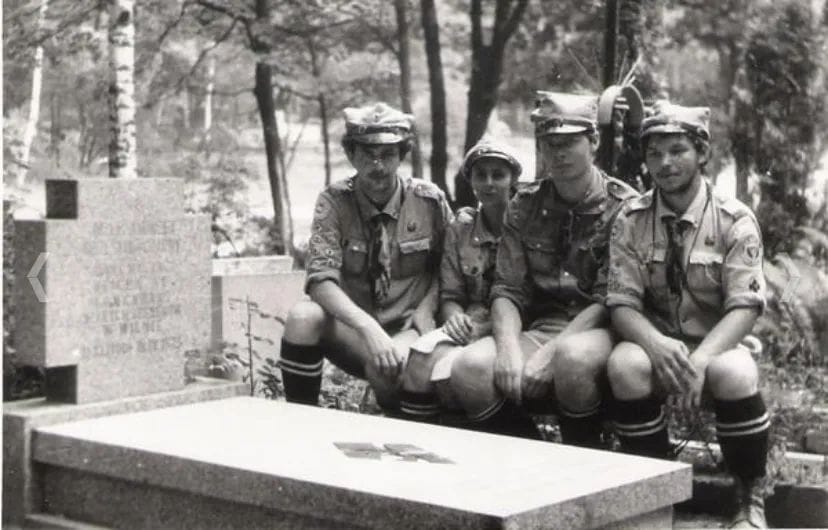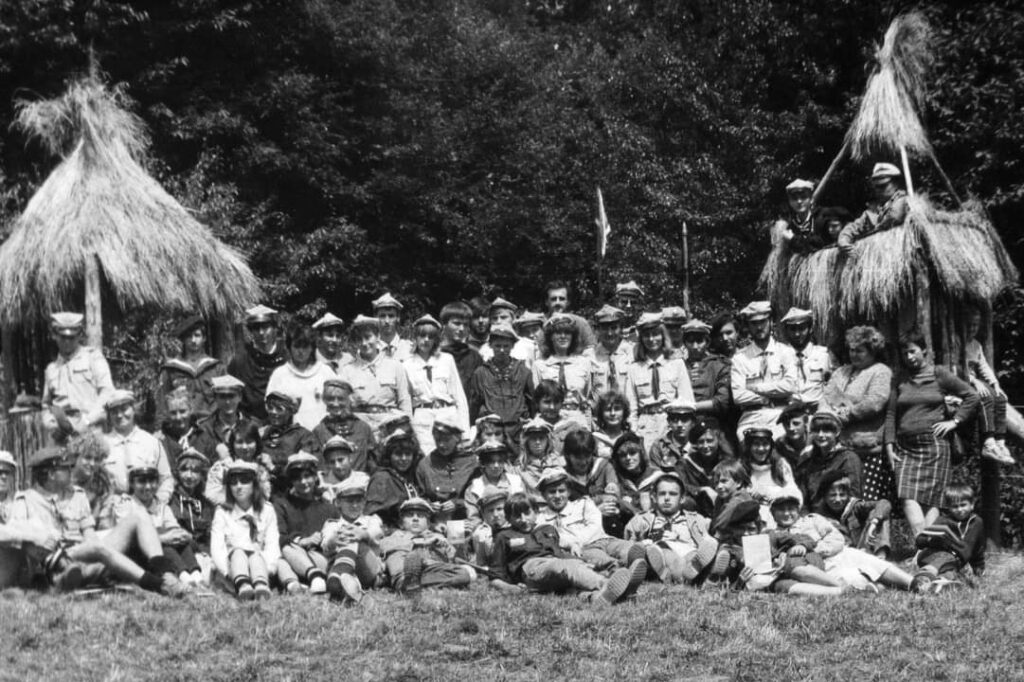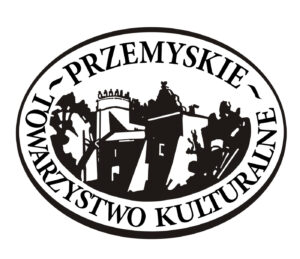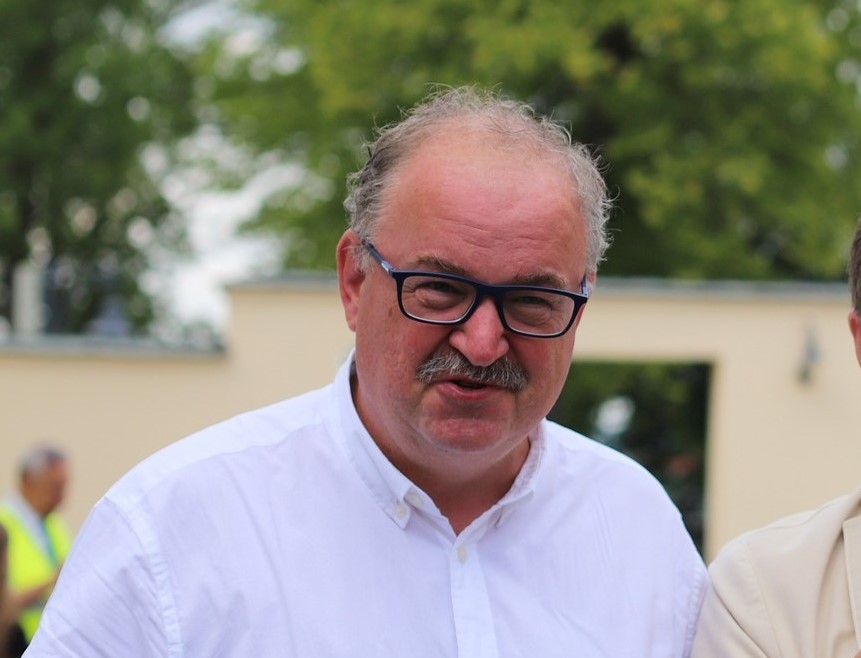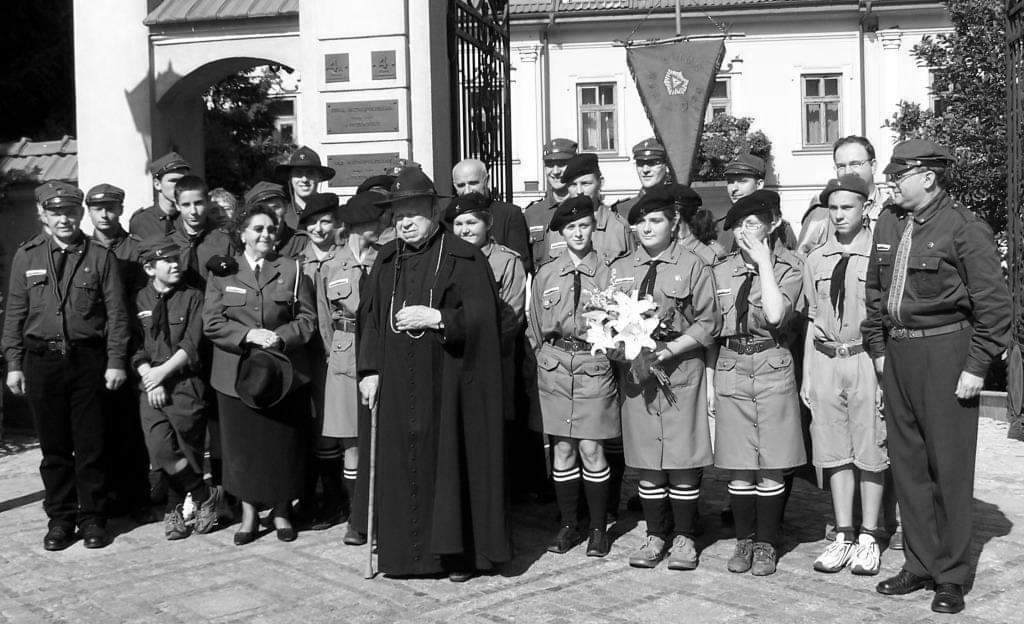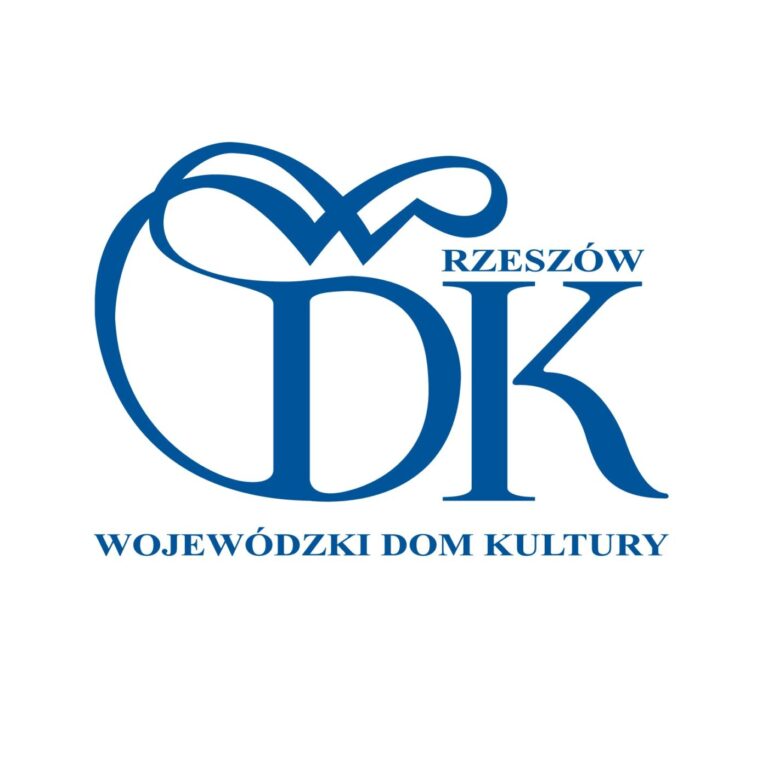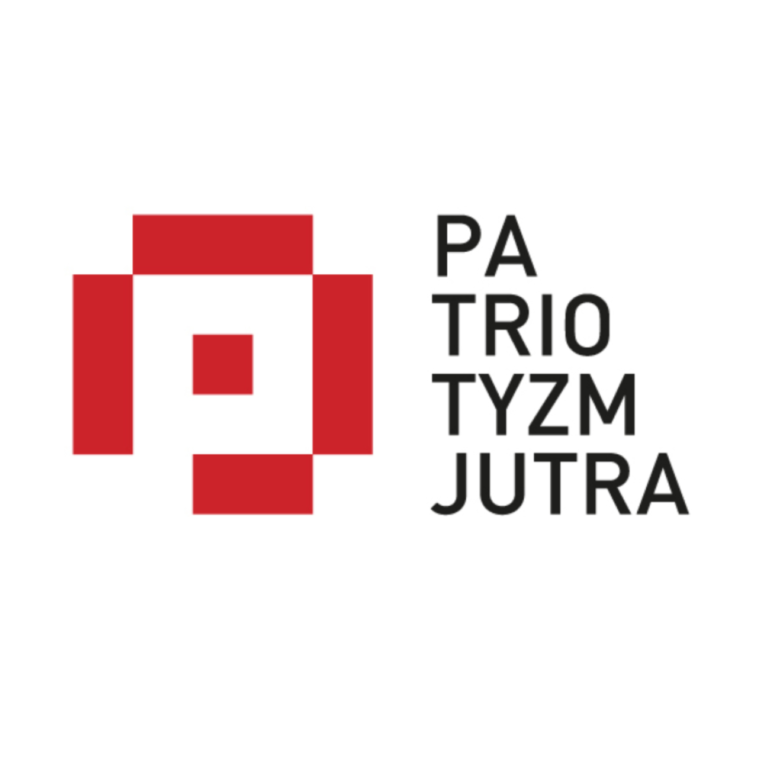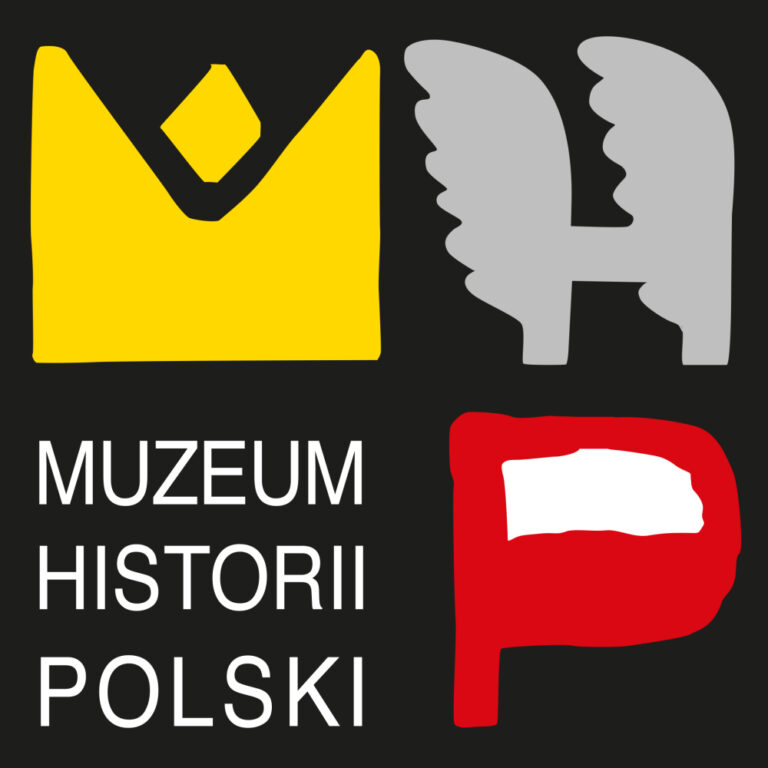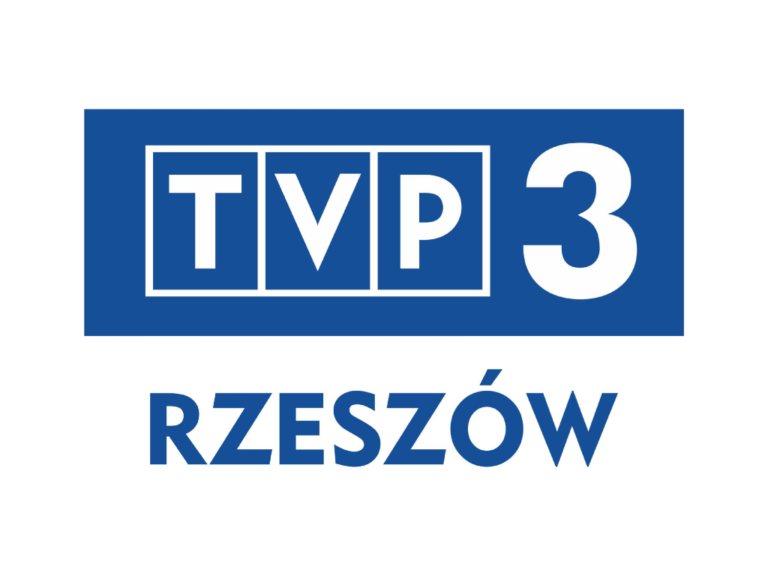My memories of 1982-1985 activities
The Black Thirteen of Przemysl, a Scouting troop functioning at the Scouting Team Strain at the Mechanical-Electrical Technical School in Przemysl, was the nucleus of an independent Polish Scouting/Scouting based on the pre-war tradition.
.
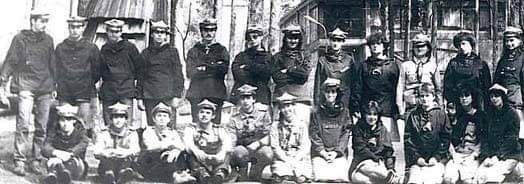
In the wave of Solidarity in 1980, changes affected many areas of life, in addition to the independent trade union movement, student movement, art movement, also the scouting movement through some instructors, but also conscious young people with patriotic traditions, wanted independence and separation from the communist state-owned Polish Scouting Association, which until recently was called the Scouting Service of Socialist Poland (HSPS). It is worth mentioning that in many schools membership in the Scouts was compulsory, as in the First High School in Przemyśl, while the alternative was the inferior, because outright communist, ZSMP (Union of Socialist Youth of Poland - Polish United Workers' Party).
In 1981, at the Mechanical and Electrical Technical School in Przemyśl, also thanks to several students, including Andrzej Berestecki, Ryszard Wojnar and the scouts' mentor, Defense Prepossession teacher Ludwik Skwara, the intention to transform the teams based on the tradition of pre-war scouting with the then Scout Promise and Scout Law was realized. The Scout Promise read:
"I have a sincere will all my life
To perform the service of God and Poland,
provide willing assistance to others
And be obedient to the Scout Law."
This text was unacceptable to the communist authorities, the reference to God was at odds with the preferred atheistic world view.
It began with the Scout Pledge in Slonim-on-the-San, when more than 60 young students, mostly from the Mechanical and Electrical Technical School, took the Pledge in the very content shown above. Each received a numbered stylized convex Scout Cross (in the communist ZHP the crosses were flat and had no numbers). I received Cross number 62. In an unusual setting by the campfire and torches at the site of the vow was buried a bottle-time machine with the pledge rotas, names and surnames of the pledging scouts. It was an extremely solemn moment. There were three teams in the strain: 11 Tourist, 13 Defense and 14 Water, which worked closely together. We knew each other very well, because we went to camps, winter camps, gatherings and actions together.
I will discuss in more detail the activities of the 13th Scout Troop named after Józef Grzesiak, called the Black Thirteen from the beginning. The Black Thirteen movement developed in Poland, and they were united by the unusual number and traditions of pre-war scouting. There were even rallies of the Thirteen, we kept in touch with, for example, the Black Thirteen from Cracow, we visited each other. Important for us was the Patron of the Troop - Jozef Grzesiak a.k.a. Czarny, scoutmaster, Home Army soldier and independence activist, buried in Gdansk. I remember that we went to his grave and met with his wife, who talked about December 1970, when bloody suppressed demonstrations of workers passed under her windows, shots were fired. This made a big impression on me. I became a team leader of the Black Thirteen in 1983. At that time I was a student of the 4th grade of the Mechanical and Electrical Technical School in Przemyśl, with a profile of machining. Our team included more than a dozen classmates who, seeing that we stuck together, were eager to join the ranks. Incidentally, our class was not one of the humble ones either, for example, during martial law, despite the announced ban, we escaped from classes on the first day of spring (there were calls in the country to go on strike on that day), just with a guitar almost the whole class went to the Tatar Mound. What happened after that? Our absence was treated as a protest against the authorities, we had to explain ourselves, our parents were summoned, our teacher was questioned, and for the next three Saturdays we had mandatory community service. By chance, we learned what freedom and respect for communist prohibitions looked like in the real world.
All of us, without exception (and there were only boys in the class), attended religion lessons in the catechism room at the Franciscan-Reformed Church, and many of us attended real history lectures at the Catholic Intelligentsia Club at Holy Trinity Church. Like many young people, we wore resisters in our clothes. These manifestations of independence were many, in classes, during meetings with so-called interesting people, during marches and other mandatory activities. And we had different teachers. I remember when in elementary school the P.E. teacher saw a cross (medallion) around my neck, got upset and angrily tore it off with his hand. This was mostly incomprehensible to me.
Returning to the Black Thirteen, the entire period when I was team leader was very active (from September 16, 1983, when the entire Team elected me its team leader until April 20, 1985, when I resigned due to my matriculation).
Troop meetings were held weekly, troop meetings - monthly, in the summer we went to camps, and in the winter we went to winter camps. All our activities were based on pre-war scouting traditions, for example, those wishing to join our ranks had to pass a probationary period, obtain scouting proficiencies, take the Lilja oath, which was a prelude to the scout pledge. In our daily service we were accompanied by field Masses, guards at the graves of the Przemysl Eaglets, patriotic storytelling, and invited guests such as Leszek Wlodek, a scout of the Grey Ranks and a soldier of the Home Army. We had our own chaplain, Fr. Stanislaw Czenczek, and we visited our Bishop Ignacy Tokarczuk in a large group - these were unforgettable, friendly meetings, they lasted a long time and it was clear that the bishop cared about them.
I remember well how on April 12-16, 1984, our team participated in the Vanguard Team Rally at SHS Perkoz in Mazury. We were selected for the trip by the Przemysl Province, we were supposed to present ourselves well, and at that time we were close-knit, singing, having attended many camps, bivouacs, everyone had scouting degrees or proficiencies, the team was numerous, divided into several squads. And everything would have been ok from their point of view, if it weren't for the fact that it was natural for us that when it was Sunday, we would all go into the church in twos or fours, with our cornets on our shoulders, and attend Mass. This was the case at the time as well, a nearby church full of people witnessed just such our behavior. We did not have to wait long for a reaction. In the camp at the Rally, the commandant and other members of the leadership were already waiting for us, conversations and explanations began: and why, and what for, and not here, and there will be consequences. This information, of course, also reached the Przemyśl flagship and there were no more proposals. It is worth adding that the Black Thirteen was one of the few to develop its Constitution.
To sum up, the time of the scouting years was an extraordinary period for all of us to form our characters, to educate ourselves in patriotism, religious life, to learn about real history, about other people and friendship. But we also clearly began to distinguish between good and evil, truth and lies, the communist party system and the democratic opposition. These lessons learned paid off in the subsequent stages of my life, that is, during my studies in my activities in the Independent Students' Union at the Krakow Academy of Fine Arts, in my activities in the Civic Committee for Krakow Krowodrza and in the June 4, 1989 elections as a shop steward for the candidates of the Civic Committee and in the NSZZ "Solidarity".
